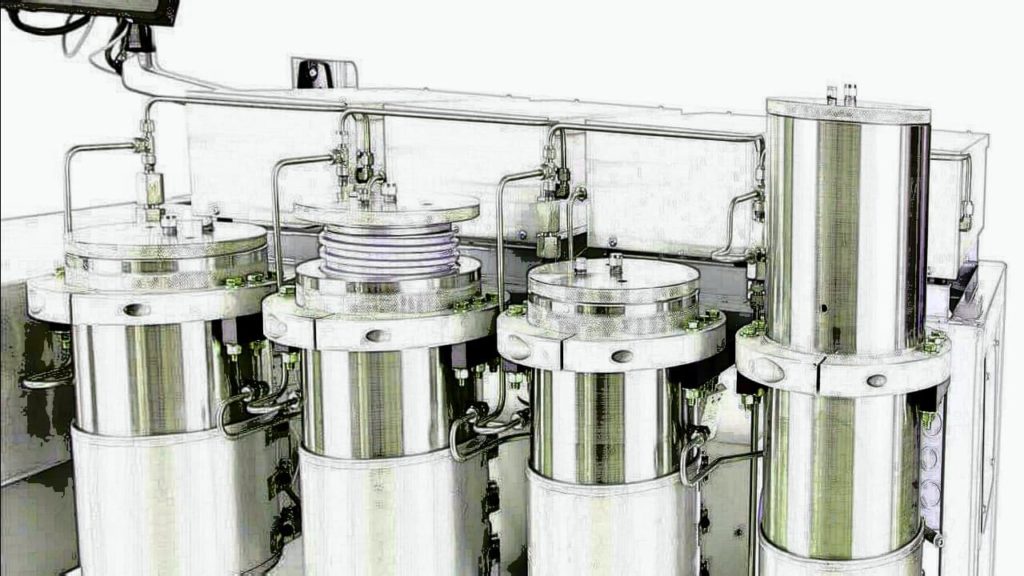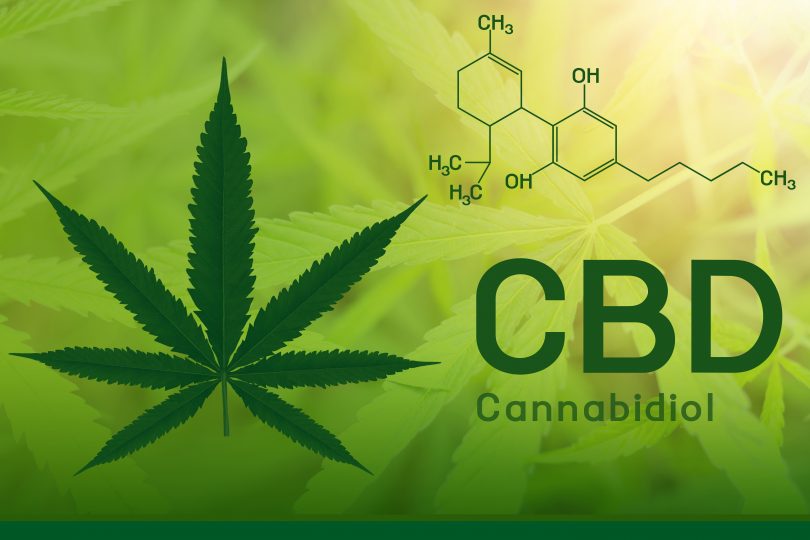Cannabidiol (CBD) is the most dominant, non-psychoactive cannabinoid found in the cannabis plant, and the methods for utilizing this compound are becoming increasingly technical.
When it comes to products other than flowers, the CBD needs to be extracted from the plant matter and processed into isolate or distillate. If you’re trying to manufacture a product with a very specific amount of CBD in it – medication for example that would require accuracy down to the milligram – you will need isolate or distillate.
But not just any CBD isolate or distillate will be acceptable though, you will need it to be made at a EU GMP facility. This applies to anyone in the world, as the industry is moving towards a more regulated entity, but GMP (good manufacturing practice) is especially important in the European CBD/hemp industry.
All European cosmetics and medications that have CBD (and otherwise) in them need to be GMP-certified with producers listed in the Eudra Database, which will cover a bit more later in the article. For now, let’s take a look at the difference between CBD distillate and isolate.
We also have a B2B deal listed at the end of the post for EU GMP CBD distillate and isolate. Both products will be sold in large orders (kilos) and can be used for the manufacture of legal CBD products to distribute throughout Europe and the rest of the world.
Looking for certified EU GMP CBD isolate or distillate?
Click HERE or use the sign-up form below to subscribe to the CBD Business Weekly Newsletter.
What is CBD?
Cannabidiol, or CBD, is a non-psychoactive compound found in the cannabis plant. It’s also the second most prominent cannabinoid, next to tetrahydrocannabinol (THC), that most people are relatively familiar with.
CBD can be extracted from both regular cannabis plants (those with all cannabinoids including THC, and often what you’d find in a medical cannabis dispensary and recreational store) and hemp plants (classified as having less than 0.3 percent THC content and often used for more industrial purposes). When talking about CBD extracts, there are a few terms that frequently get thrown around: isolate, broad spectrum, and full spectrum, we’ll discuss the difference shortly.
Numerous studies showing the medical potential of CBD have been making the headlines in recent years. It’s been used to treat epilepsy, chronic pain, inflammation, anxiety, depression, and more. It’s used therapeutically much more often than THC (tetrahydrocannabinol) because it doesn’t have any mind altering effects.
The reason CBD works for such a diverse range of conditions is because of the Endocannabinoid System (ECS). The ECS is a network of receptors that can be found throughout the bodies of all mammals. We naturally create cannabinoids which bond to these receptors to regulate different processes in our bodies and maintain homeostasis.
The ECS helps manage things such as immune function, appetite, sleep wake cycles, pain response, and the list goes on.
On the other hand, when we are ‘cannabinoid deficient’ our bodies become destabilized and no longer function optimally. It’s theorized that many illnesses stem from the inability to produce endocannabinoids. This is where supplementing with plant-based cannabinoids (phytocannabinoids) comes into play.
The Difference Between CBD Isolate and Distillate
The most CBD extract on the market is isolate. As the name indicates, this product is made by completely isolating the cannabidiol from all the other plant matter and compounds. That means all other cannabinoids, terpenes, flavonoids, and inactive compounds are stripped from the extract, leaving only CBD. The final product is a fine white powder that has over 99% CBD. Basically, it’s an extra-refined distillate.
Because it’s odorless, tasteless, and highly concentrated, it’s a great to use in the manufacture of many medical, wellness, and retail products. Its purity means that 1 milligram of isolate equals exactly 1 milligram of CBD, whereas 1 milligram of less potent extract might have 0.5 milligrams of CBD, 0.3 milligrams of CBG, and 0.2 combination of other terpenes and compounds. This makes isolate very easy to use for specific dosing.
Distillate is another highly concentrated cannabis extract. CBD distillate typically has upwards of 90% cannabidiol, but because it’s created differently than isolate, it retains a bit more of its other compounds. Distillate is good for anyone who needs accurate dosing, but could stand to benefit from the Entourage Effect as well.
Extraction Methods
To make isolate, the CBD must be extracted from the plant – and there are numerous ways to do this. The industry gold standard and consumer favorite is CO2 extraction. The equipment is industrial and very pricey, but this method results in a very pure final product. A closed-loop system is used to cool CO2 to -56C, as the pressure inside the chamber is hiked up to 75psi.
The CO2 becomes “supercritical” at this stage and sits somewhere between a liquid and gaseous state. The CO2 is then passed through the closed chamber and, almost like a solvent, the cannabinoids and terpenes are extracted and remain intact. This process is called Supercritical CO2 Extraction. There’s also Subcritical CO2 Extraction which used cheaper equipment, lower pressure, and results in smaller yields.
A more cost-efficient but equally effective method is with an ethanol extraction system. Ethanol extraction involves applying the solvent ethanol directly to the hemp plant in order to extract the cannabinoids. Ethanol extraction has gotten a bad reputation as being unsafe, but that’s simply incorrect. Ethanol extraction is actually an FDA-approved method of extraction compounds from various plants in order to make food and medicines.
There is one issue with ethanol extraction, however. Certain compounds easily co-extract with ethanol, and the one of concern here is chlorophyll. Chlorophyll is a molecule that absorbs sunlight and converts it into plant energy. It also gives plants their green color. When using ethanol extraction, the chlorophyll may need to be stripped away in a separate process.
Distillate is a bit different. After CBD is oil extracted from the plant, it’s vaporized and the vapor is collected in a distillation cooling system. Each compound in the plant can be separated because of the variations in volatility, or boiling point, so the result is a relatively clean product.

What Are These Products Used For?
These products can be used to make anything that has CBD in it – edibles, topicals, tinctures, softgels, nasal sprays, various pharmaceuticals, and the list goes on. Anything that requires accurate dosing and will benefit from isolate and distillate.
Better yet, if the product is manufactured in a GMP-certified facility. It’s already a requirement in Europe, India, and many other countries/continents that all medications, supplements, and cosmetics must be GMP-certified. And while the North American market is currently an unregulated free-for-all, this is expected to change over the next few years.
Eudra Database
The Eudra GMDP is the name for the Union database that lists products with GMP certificates as well as current import authorizations. The Eudra database was first launched system in April 2007, with a second release in July 2009. It is maintained and operated by the EMA (European Medicines Agency). Access to this database is granted to the general public in order to educate and inform, and to encourage the compliance of brands and manufacturers.
The public version of the database has been available since 2011. Some information is excluded from the Eudra database such as able to exclude some information from public view. This includes information of a commercially sensitive or personal nature, inspection planning and information that may need to be restricted in the interests of security.
The goal of Eudra is to “improve the sharing of information between regulators and the public, including the pharmaceutical industry; aid the coordination of inspections of manufacturers in third countries among national competent authorities; eliminate the need for industry to submit paper documents to support marketing-authorisation and variation applications; and help protect the medicine distribution chain and active-substance supply chain by facilitating the verification of legitimate actors.”
Where to Get EU GMP CBD Isolate and Distillate
We have partnered with some leading suppliers of CBD isolate and distillate. Both products are, as you probably guessed, GMP and certified by the EU, from partners listed in the Eudra database, and available for export globally. We offer the best pricing and have the ability to accommodate extremely large orders.








Nice post! Thanks for sharing this.